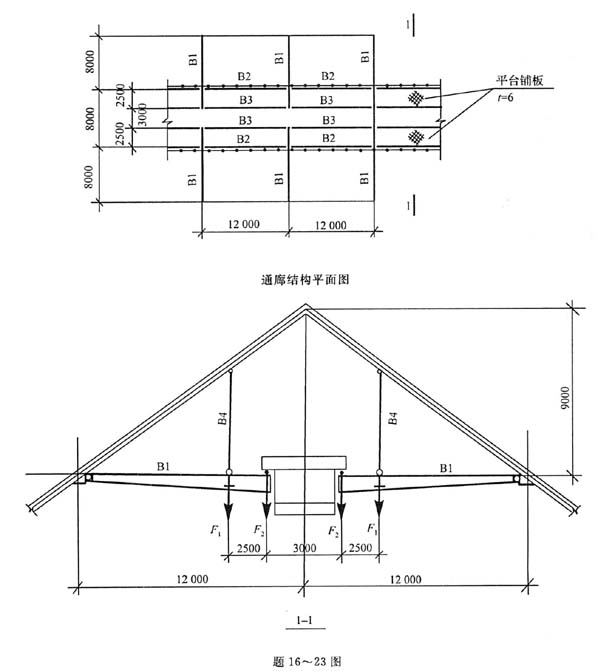问题
单项选择题
胶带机通廊悬挂在房框架上,通廊宽8m,两侧为走道,中间为卸料和布料设备,结构布置如题图所示。通廊结构采用Q253B钢,手工焊接使用E43型电焊条,要求焊缝质量等级为二级。
轨道梁(B3)支承在横梁(B1)JE,已知轨道梁作用在横梁上的荷载设计值(已含结构自重)F2=320kN,试问,横梁最大弯矩设计值(kN·m)应与下列()项数值最为接近。
A.1600
B.1200
C.800
D.400
答案
参考答案:C
解析:
横梁(B1)为单跨梁,悬臂2.5m,F2=320kN,M=320×2.5=800kN·m
